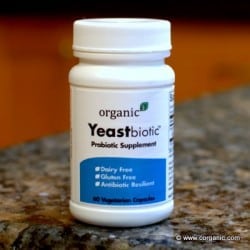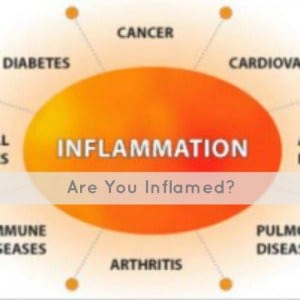
Last July (2015) I had to have surgery. I rested a lot while I was recovering because it really took me down. The procedure was 4.5 hours. When I was one week post-op I was feeling semi-okay, but I could tell that my body had undergone a major shock due to anesthesia and trauma to the tissues. My recall wasn’t good and I was extremely weak.
Surgery is really what is referred to as “benign violence,” a term used for the “calculated and deliberate wounding of the human body, even when the goal is curative.” The body doesn’t know (or care) what the cause of the trauma and tissue damage is whether it be by a surgeon’s scalpel or other kind of injury … either way the immune system is going to respond the same.
Fortunately, with most surgeries you have the opportunity to take a proactive role in your well-being by following documented steps to support your body’s antioxidant stores, reduce inflammation, and modulate immune responses that accompany surgery. By paying careful attention to nutritional status, you can speed up your recovery and experience successful results.
Taking an active role in my own surgery is exactly what I did. As a nurse, I completely understand the psychological stress associated with the pre-op period, fear about the operation itself and being unconscious, intubated, and curiosity over the skills, gifts & talents of the surgical team. The average surgical patient receives a minimum of 10 medications during surgery including oxygen. Oxygen provided during surgery is itself a mixed blessing: oxygen is critical for maintaining normal cellular functions and proper wound healing; however, supplemental oxygen also produces increased levels of reactive oxygen species that can damage tissues. Also, surgery in and of itself lowers circulating levels of vitamins A, E, and other naturally occurring antioxidants, and anesthesia causes leaky gut. This is why as soon as I knew I needed surgery, I became intently focused on what my pre-and postoperative nutrition would be giving extra special attention to maintaining adequate antioxidant status to help minimize the negative effects of tissue damage and free radicals.
Today, however, I want to mainly discuss antibiotics. In Part II & III I will discuss pre and postoperative nutrition and specific antioxidants necessary to recover from surgery timely and successfully.
My procedure required that I be discharged with surgical drains, therefore, to not take an antibiotic was not an option. Was I scared? Of course I was, I was terrified. I’ve come so far in healing my gut, Hashimoto’s and other autoimmune issues, and getting rid of candida. I took a specialized high quality probiotic in between my dosage of antibiotics (Keflex, 500 mg 3 times per day, plus I received 1 gram of Ancef in the OR), but not the probiotic I take on a daily basis. I’m using a targeted probiotic intended to be used with antibiotics (discussed below).
It’s just my observation, but I don’t think many people including healthcare professionals really understand just how devastating an antibiotic can be for the person with autoimmune disease. Of course, I understand they are necessary, I’m not stupid. Infections can be deadly. At the same time, I also know antibiotics are often over prescribed, and then I’ve seen the traumatic consequences many times in patients admitted to the hospital with life threatening C. dificile (C. diff) infections simply from the use of antibiotics in the community setting.
The good news is that there is a way to attempt to alleviate problematic side effects of antibiotics. I’m a fan of taking probiotics and have since the day I was diagnosed with Hashimoto’s and other autoimmune disorders and I rotate strains. However, the probiotic I’m using post-surgically is not the same type of probiotic. I think the mistakes people make when taking an antibiotic is believing that taking any probiotic along with their antibiotic will suffice, or eating yogurt or fermented foods is good enough, or not understanding that antibiotics destroy ALL bacteria, good AND bad.
The use of an antibiotic requires a completely different strain of probiotic during the post-operative period than the typical even high quality probiotic for every day use. The strain needed to support gut health during a course of antibiotics is known as Saccharomyces boulardii. This organism is a non-pathogenic transient yeast long-used for diarrhea or dysentery. It is very hardy, acid-resistant, temperature tolerant and is not affected by anti-bacterial agents. S. boulardii found in YeastBiotic protects against C. dificile, toxigenic E. coli, Candida, and other gastrointestinal pathogens. It also augments colon bifidobacteria populations and increases butyrate concentrations (this is a good thing!), and enhances brush border enzyme activities and improves gut barrier function…essential for those with leaky gut issues or autoimmune disease.
What is this magical must have probiotic?
 Yeastbiotic is naturally resistant to all antibacterial antibiotics and can be taken along with antibacterial antibiotics without adversely affecting potency or efficacy. Research has found that S. boulardii supports healthy intestinal function in an array of clinical settings including antibiotic-associated diarrhea, C. difficile disease, inflammatory bowel disease (IBD), irritable bowel syndrome (IBS) and traveler’s diarrhea.
Yeastbiotic is naturally resistant to all antibacterial antibiotics and can be taken along with antibacterial antibiotics without adversely affecting potency or efficacy. Research has found that S. boulardii supports healthy intestinal function in an array of clinical settings including antibiotic-associated diarrhea, C. difficile disease, inflammatory bowel disease (IBD), irritable bowel syndrome (IBS) and traveler’s diarrhea.
If you or a loved one has an upcoming surgery or will be taking an antibiotic anytime soon, I strongly encourage you to stock up on Yeastbiotic. It’s only $34.95 and you won’t be sorry, I PROMISE.
PS: Another tip that goes hand in hand with using Yeastbiotic when taking a course of antibiotics, is consuming bone broth several times a day. Check out my bone broth article and if you or a loved one is going to be recovering in the hospital anytime soon, check out my tips for how to survive a hospital stay here.
Blessings,



